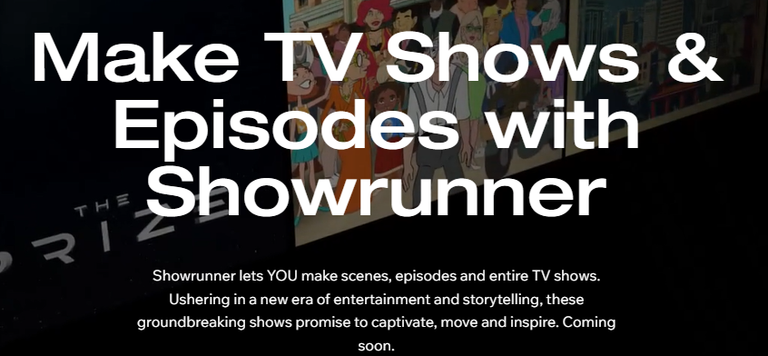This is one of the most fascinating disruptions since we can witness it in real time. We are watching a very powerful (and influential) industry collapse right before our eyes.
Hollywood as the epicenter of entertainment is done. We no longer need Hollywood. It is a relic, something they are just starting to realize.
Technological disruption can come in many forms. With Hollywood, it is a one-two punch that is taking it out.
Unfortunately, many point to the minor issues that really have no impact. Hollywood is not failing due to wokeness, high ticket prices, COVID, or the making of bad films. These are simply icing flowers on the cake.
They are not the cake.
Instead, Hollywood is still reeling from something that took place 30 years ago along with a new disruption.
This is what we will dive into.
Forbes: Streaming Could Be Hollywood's Final Act
To its credit, Forbes is one of the few that picked up on what is taking place. Many have latched onto the streaming idea although they look at the surface.
Forbes posted this "The future of Hollywood changed forever in August 1997" as a byline.
The article goes on to explain how Netflix disrupted the industry via its DVD mail service and, eventually, streaming. This forced the other studios to get on board, costing them billions of dollars. The challenge is the companies were too late.
Here we have the first major disruption for Hollywood:
The Internet broke the monopoly movie studios had on distribution.
It is a fact that is often overlooked. Before this medium came about, Hollywood basically controlled all that was seen via film or television. There were a few independent studios that occasionally had a breakout film. Nevertheless, for the most part, it was all under the realm of the major studios.
The Internet changed this. It was, naturally, a slow process. Video is not an easy a media type to deal with. Technological limitations stood in the way. This was something that causes a large gap between potentiality and impact.
An industry that was affect almost immediately, since it dealt mostly in text, was the newspaper industry. In the United States, thousands of newspapers closed their doors (or were acquired) within a decade of the Internet going mainstream.
Hollywood now faces a similar fate.
Simply put, centralized entities producing films is no longer required.
Disruption 2: Generative AI
A lot is written about the potential of generative AI. At this point, it is mostly potential since we are still in the early days of this technology. Many are calling for a hype cycle (bubble bursting), which might happen. It is not uncommon for expectations to get ahead of the technological progress. This is especially true when a great deal of infrastructure is required. We can look at the training of LLMs as the infrastructure needed to build applications utilizing this technology.
For Hollywood, this further spells death.
Corporations like to pass the nonsense that this is "not a jobs killer but meant to assist employees". That is the case until the technology advances enough to let the employee go.
The same thing is going to happen in Hollywood.
There are fights taking place to protect the workers, including agreements to not use AI. This becomes a minefield when we add actor images to the mix.
Whatever the pathway, the reality is none of this matters. Hollywood studios are under the same attack. These are centralized entities in a decentralized world.
For example, Showrunner is a platform that will allow users develop shows utilizing generative AI.

What does this mean?
The future of entertainment is personalized. People are going to be generating all kinds of content. Here we see a shift from the centralization of Hollywood to the decentralization of the masses.
It is why they are fighting AI so much. They know it is the end for them.
Web 3.0 Opportunity
This is the opportunity for Web 3.0.
Nothing says decentralization like Web 3.0. Of course, so far, any advancement is basically in the centralized realm. There are specific companies that are being established to take on the major studios. Naturally, this decentralizes the production, with more entities involved.
It is, however, still under the control of a company that is behind the platform.
In other words, a successful Showrunner could simply become another YouTube. It is a challenge to the establishment yet simply swaps centralization in one form for another.
There is also the question of monetization. We know there are a variety of ways this can go. However, if we are moving towards an agentic internet, how does that factor in?
Suddenly the platform becomes crucial. What else is being offered? Essentially, we are looking a the "town" concept. In the olden days, when communities were first forming, they were small towns. Since they were basically isolated, everything that was needed had to be provided locally.
We are looking at a similar structure in my opinion.
AI agents that are built on platforms (networks) that offer a multitude of services are going to excel.
This is what Web 3.0 does. The tribalism we see is not completely without merit. That which not only has tribalism but builds out, offering everyday services people require, will be able to expand in ways few imagine.
It will only be enhanced by AI agents.
Entertainment is huge. Having that resident on a platform is crucial to retain eyeballs. After all, early towns all had a theater.
The fragmentation of Web 3.0 assures that Hollywood is not needed. We are, once again, back to the distribution situation. However, generative AI adds another element to the mix.
Even removing that from the discussion, even Forbes sees the death of Hollywood.
Posted Using InLeo Alpha


